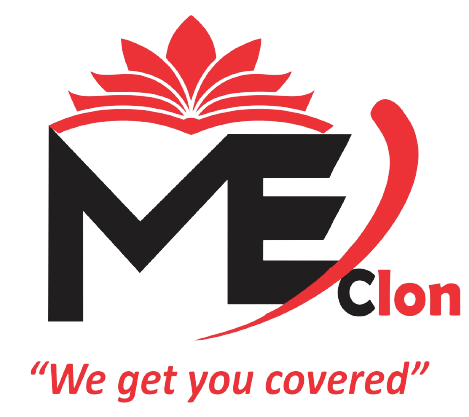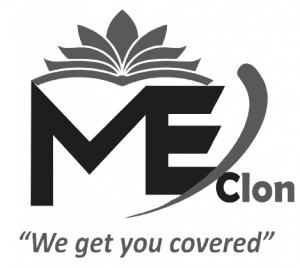What is meant by employment income?
Employment income includes: Wages, salary, leave pay, payment in lieu of leave, overtime pay, fees, commission, gratuity, bonus, allowances entertainment, duty, utility, welfare, housing, medical, or any other allowances.
What is employment income tax?
Employment income’ means any earnings from an office or employment received in the tax year, including not only wages, salary, and fees but also gratuities, tips, and other benefits in money or money’s worth.
What is employment income tax as per the income tax act (ITA)?
Section 5 of the income tax act states it’s any amount paid to
(a) a person who is, or was at the time of the employment or when the services were rendered, a resident person in respect of any employment or services rendered by him in Kenya or outside Kenya; or
(b) a non-resident person in respect of any employment with or services rendered to an employer who is resident in Kenya or the permanent establishment in Kenya of an employer who is not so resident shall be deemed to have accrued in or to have been derived from Kenya.
For the purposes of section 3(2)(a)(ii) of ITA, “gains or profits” includes wages, salary, leave pay, sick pay, payment in lieu of leave, fees, commission, bonus, gratuity, or subsistence, traveling, entertainment or other allowance received in respect of employment or services rendered and any amount so received in respect of employment or services rendered in a year of income other than the year of income in which it is received shall be deemed to be income in respect of that other year of income.
Taxation of benefits and allowances
MOTOR VEHICLES BENEFITS
These benefits arise when an employer provides a car or any vehicle to the employee to facilitate the company’s operation, taxation arises when the employee uses the vehicle for his private purposes. – SEC 5(2B) (a) of the income tax act states “Where an employee is provided with a motor vehicle by his employer, he shall be deemed to have received a benefit in that year of income equal to the higher of –
(i) Such value as the Commissioner may from time to time determine; and
(ii) The prescribed rate of benefit is “two percent of the initial capital expenditure incurred by the employer on the vehicle”. Provided that-
(i) where such vehicle is hired or leased from a third party, the employee shall be deemed to have received a benefit in that year of income equal to the cost of hiring or leasing; or
Did you know that you can request the commissioner to reduce the rate of taxing mv benefits?
Technical notice number 9 states that you can apply for a reduced rate if the employer has “restricted use” of such motor vehicle benefits and the commissioner is satisfied with the fact. Proof of restricted use shall be provided by the employer based on among other considerations, the nature of the employee’s duties and the controls reasonably exercisable over the motor vehicle’s usage.
Where an employer intends to claim restricted use of a motor vehicle provided to an employee, the employer shall maintain a documented policy containing details of;
(i)the cadre of employees entitled to be provided with motor vehicles;
(ii) The permitted usage to which the motor vehicles may be put;
(iii) The nature of expenses if any, to be met by the employees or the employer in respect of the vehicles;
(iv) Evidence of how usage is monitored and controlled;
(v) Whether the vehicles are self or chauffeur-driven.
The Commissioner may at any time, where he considers appropriate, require the employer to furnish him with the following information;
- the list of employees to whom motor vehicles have been provided,
- the make, registration, engine capacity, and cost of the vehicle provided to any employee,
- the extent to which the vehicle is shared by the other employees,
- where the prior authority of use is required, the designation/rank of the person holding that authority,
- Circumstances under which the vehicle is used during the non-official working time such as weekends and public holidays.
HOUSE BENEFITS
House Rent Allowance (HRA) is the allowance provided by an employer to their employee as compensation for house rental expenses paid by the employee. It forms part of the salary paid by the employer to their employee.
For the purposes of subsection (2)(e), the value of premises, excluding the value of any furniture or other contents so provided, shall be deemed to be –
The housing benefit for a director and a whole-time service director shall be the higher of 15% of total income or employment income, in case of whole-time service director, the fair market rental value and the actual rent paid by the employer
Agricultural Employee Including a whole-time service director who is required by terms of employment to reside on a plantation or farm; – – 10% of his gains or profits from employment minus any rent charged to the employee. This is subject to the employer obtaining prior approval from the Domestic Taxes Office. Agricultural employees shall not include a director other than a whole-time service director.
Any other Employee The taxable value shall be the higher of an amount equal to 15% of the gains or profits from employment or services rendered, excluding the value of those premises, or the rent paid by the employer if paid under an agreement made at arm’s length with a third party: Provided that; –
- If an employer pays rent under an agreement not made at arm’s length with a third party, the value of quarters shall be; the fair market rental value of the premises in that year or rent paid by the employer; whichever is higher, or
- Where the premises are owned by the employer; the fair market rental value of the premises in that year is to be taken.
MEDICAL SERVICES AND MEDICAL INSURANCE
Where an employer provides its employees including directors and their beneficiary’s spouse & up to 4 children whose age does not exceed 21 years with free medical services or free medical insurance, the value of such medical service or insurance is not a taxable benefit on the employee.
- In the case of medical services provided to a director other than a whole-time service director shall be the limit that will be prescribed by the Cabinet Secretary from time to time. The current limit is Kshs.1, 000,000 per year.
- The medical insurance must be provided by a provider who is approved by the Commissioner of Insurance.
DEFINED BENEFIT FUND OR DEFINED CONTRIBUTION FUND
An employee’s contribution to any registered defined benefit fund or defined contribution fund is now an admissible deduction in arriving at the employee’s taxable pay of the month. The employee’s deductible contribution is the lesser of:
- a) 30% of pensionable pay.
- b) Employee’s actual contribution.
- c) Ksh. 20,000 per month
HOME-OWNERSHIP SAVINGS PLAN
A depositor (employee) shall in any year of income commencing on or after 1st January 1999 be eligible to a deduction up to a maximum of Kshs. 4,000 /- per month or Kshs. 48,000/- per annum in respect of funds deposited in “approved institutions” under “Registered Home Ownership Savings Plan”, in the qualifying year and the subsequent nine years of income. Further, with effect from 1st January 2007 interest earned on deposits not exceeding Kshs. 3 million which deposits are made in qualifying institutions shall be exempt from tax provided that:
- a) Employer has evidence to confirm that the Home Ownership Savings Plan with which employee wants to save is registered by the Commissioner of Domestic Taxes.
- b) Employer will be the one to deduct and remit the amount to the Institution on behalf of the employee.
- c) Employers will attach to Form P9A (HOSP) a declaration duly signed by the eligible employee. The declaration so signed will serve as verification and confirmation by the employer that the employee does not directly or indirectly own interest in a permanent house. Form P9A (HOSP) as shown in Appendix 3A is to be used for this purpose.
EXEMPTION OF BONUSES, OVERTIME ALLOWANCE & RETIREMENT BENEFITS
Bonuses, overtime allowance, and retirement benefits paid are tax-exempt where they are paid to an employee whose salary before the bonus and overtime allowance does not exceed Kshs. 11,180 p.m. This is effective from 1st July 2016
LOW-INTEREST RATE EMPLOYMENT BENEFIT/FRINGE BENEFIT
When an employer provides a loan to an employee and charges interest that is below the prescribed rate of interest, then the difference between the prescribed rate and the employer’s loan rate is a benefit from employment chargeable to tax on the employee.
The benefit is computed as the difference between the interests charged by the employer and the prescribed rate of interest.
Low-interest rate employment benefit provisions will also apply to a director and will continue to apply even after the employee or director has left employment as long as the loan remains unpaid
However, following amendment to the law by the 1998 Finance Act and introduction of “FRINGE BENEFITS TAX” which is payable by employers, the determination of the chargeable benefit is now in two categories i.e. for loans provided on or before 11th June 1998 and loans provided after 11th June 1998.



